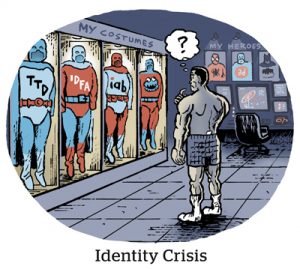 Time Warner subsidiary Turner Broadcasting revealed during its May upfront a centralized data-management platform to power its ad products.
Time Warner subsidiary Turner Broadcasting revealed during its May upfront a centralized data-management platform to power its ad products.
That system is the Turner Data Cloud, which the network souped up on Tuesday with data integrations to Epsilon, Krux and Oracle.
Using Turner’s Data Cloud, a marketer can apply first-party audience data as well as third-party segments. The goal is to enable targeting based on audience, not programming or dayparts.
“Krux acts as the bridge to [match] our repository of anonymized Turner IDs [with the] rest of the ad ecosystem,” Stephano Kim, Turner’s chief data strategist and SVP of ad ops, told AdExchanger. “Epsilon [and Oracle] then help enable some of the more complex CRM data integrations where marketers might want to bring offline or multichannel data to the table in a very secure environment.”
Advertisers and agencies can access Turner’s Premium Marketplace either directly or programmatically, said Kim. While Turner’s earliest wade into programmatic was centered on remnant inventory, Kim noted it is increasingly evaluating programmatic within a larger yield-management strategy to add advertiser value.
“Of course, we know we can’t replace the power of relationships our sales force has with our clients,” Kim said. “But I want to give them the ability to have a higher-order conversation with their advertising and agency counterparts, and take away some of the friction in building automated guaranteed channels and private auctions.”
The premise of the Turner Data Cloud was to understand – brand by brand – how audiences trend from CNN to truTV.Because of fragmentation in media consumption, networks are evolving from B2B businesses that mainly worked with legacy cable systems to newer means of distribution such as Snapchat Discover. Networks, in turn, need to rearchitect the way in which they measure, Kim said.
This trend is spurring networks to tighten the linkages between their various owned-and-operated experiences, as ESPN has done with its “total audience” and Fan Relationship Management initiatives.
Turner’s new data partnerships allow it to combine its own audience information with that of its outside partners. For instance, if a large financial services advertiser wants to deliver ads to consumer credit card holders vs. business users, it can ingest key attributes from each of Turner’s three partners, which when combined with Turner’s viewing data could bolster targetability.
“We want to build a central repository of information around consumption, tastes, geography, demographics and profile information for our viewers, and use that to deliver better value,” Kim said. “From an ad sales perspective, [we’re talking about] this notion of buying audiences rather than using context as proxy for audience.”













